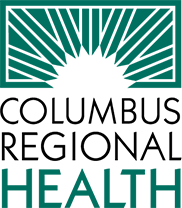Kids with Sleep Problems Face Risk of Hypertension
Snoring sometimes serves as the punchline of jokes. But snores often signify a serious disorder: obstructive sleep apnea.
The condition occurs when your muscles relax and block your airway during sleep. Although the risk increases with age, children and even infants aren’t immune. Because kids’ breath is faster and shallower than adults’, apnea can cause a harmful buildup of carbon dioxide in their bloodstream.
Now, researchers have pinpointed another danger linked to childhood apnea. Kids who have it may be at risk for developing high blood pressure as early as their teen years.
New Study Reveals the Harm
A total of 700 children between ages 5 and 12 completed a questionnaire and sleep study. Later — anywhere from six to 13 years down the line — 421 returned for follow-up.
Children who had apnea from childhood through adolescence were three times as likely to develop high blood pressure as teens. That puts them at risk for heart disease and stroke.
The worse the apnea during adolescence, the more elevated the blood pressure. The link was even stronger for males. Experts aren’t sure why but think inflammation may connect the two.
Spot the Warning Signs
Often, apnea goes undetected. Catching it can help you protect your child’s health and development.
Risk factors include being overweight, frequent congestion, and — in infants — acid reflux. Symptoms often start in the first few years of life and include:
- Snoring, labored breathing, sweating, strange movements or pauses in breathing during sleep
- Excessive sleepiness during the day
- A rib cage that moves inward when your child inhales
- Hyperactivity or aggressive behavior
- Slow heartbeat in infants
Talk with your pediatrician or another healthcare provider if you notice these symptoms. Your child might need to see a specialist at Columbus Regional Health's Sleep Diagnostic Center, who may suggest a sleep study to diagnose or rule out apnea.

CRH News
-
Final Two CRH Practices Move to NexusPark
Apr 18, 2024, 12:36 PM by DeClue, A.CRH at NexusPark officially opened in late January, and more than 15 provider practices and services have relocated to the space in the first quarter of 2024.Full story -
Wound Center Receives National Awards
Apr 3, 2024, 15:21 PM by DeClue, A.The Wound Center achieved outstanding clinical outcomes for twelve consecutive months, including a patient satisfaction rate higher than 92 percentFull story -
CRH conducting independent public health survey
Mar 26, 2024, 12:41 PM by DeClue, A.Columbus Regional Health is conducting a Health Status Survey by telephone and online from March through May.Full story -
Columbus Regional Health offers new online health portal for expectant parents
Mar 25, 2024, 14:21 PM by DeClue, A.With CRH’s new My Pregnancy Journey, patients can use their computers or mobile devices to review digital prenatal education from a trusted source and track important decisions and tasks that need to happen at specific pregnancy milestones.Full story -
Additional Medical Practices Move to NexusPark
Mar 25, 2024, 11:24 AM by DeClue, A.More practices and services relocate to NexusPark facility.Full story -
Eclipse office hours for CRH-affiliated services
Mar 21, 2024, 14:01 PM by Laker, J.Office hours for CRH-affiliated practices and service lines for the April 8, 2024, Total Solar Eclipse.Full story

